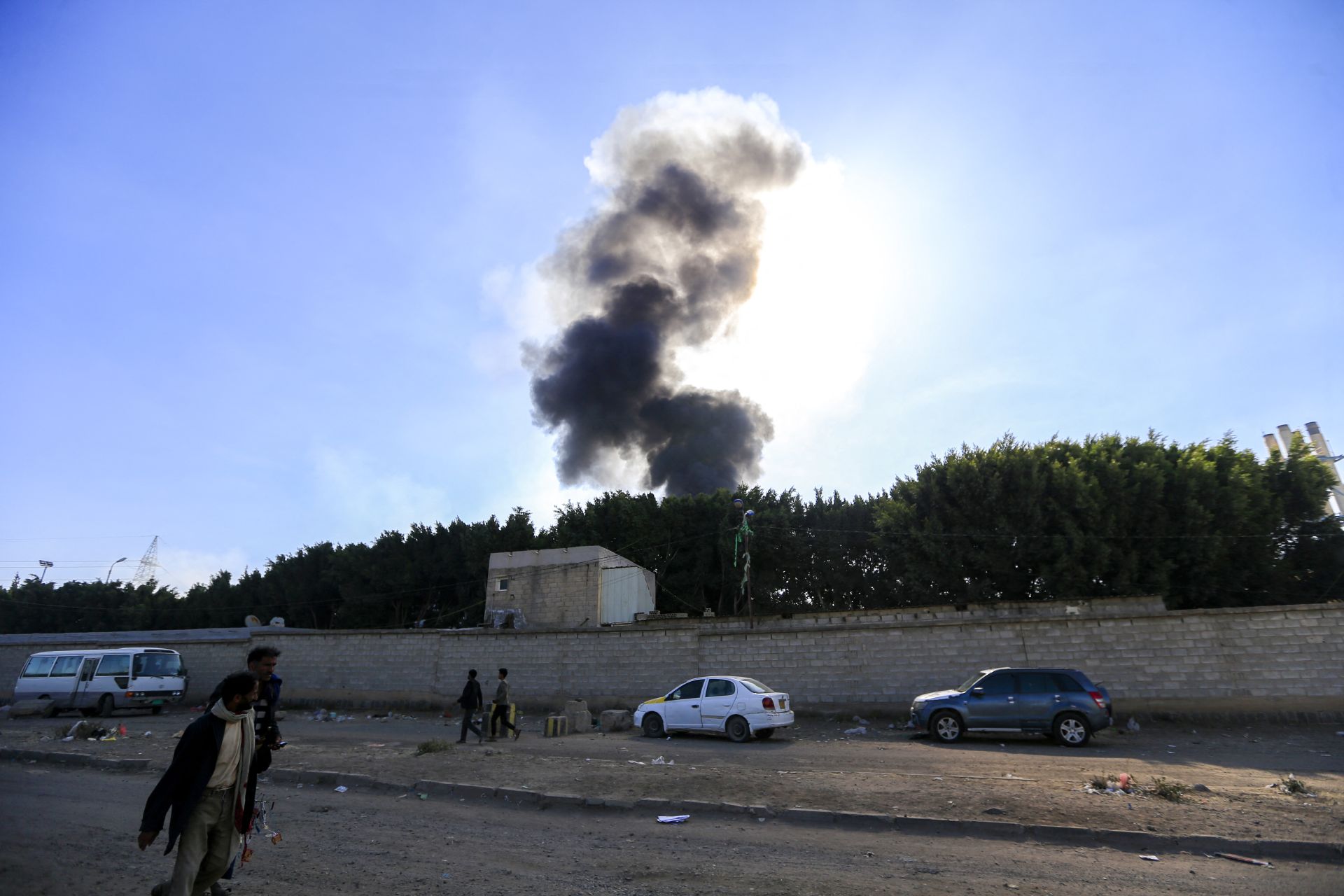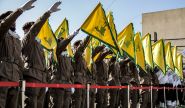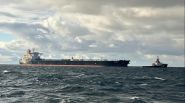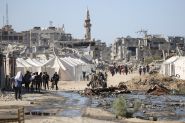- Home
- Middle East
- Yemen: the Houthis Claim Responsibility for Firing on Israel After Strikes Against Their Infrastructure

©Muhammed Huwais / AFP
Yemen's Houthi rebels on Thursday claimed responsibility for firing two missiles and a drone at Israel after Israeli raids on Yemeni ports and energy infrastructure, which left nine people dead according to their leader.
The Israeli army announced that it had struck ports and energy infrastructure belonging to the Houthis, more than 1,500 kilometres south of Israel, in response to an initial missile strike.
The launch was intercepted, the army announced, before reporting extensive damage to a school in Ramat Gan, near Tel Aviv.
‘The damage was caused by a partial interception of the missile launched from Yemen, whose warhead exploded and damaged the school’, according to an army statement.
Israeli Prime Minister Benjamin Netanyahu issued a warning to the Houthis, saying that ‘whoever strikes Israel will pay a very high price’, in a video broadcast by his office.
Israel's sworn enemy, Iran, which supports the Houthis, described the Israeli raids as a ‘flagrant violation of international law’. The Palestinian Islamist movement Hamas denounced a ‘dangerous development’, while in Lebanon, Hezbollah denounced ‘further proof of Israel's brutality’.
‘Two Israeli military targets in the Yafa region (the Arabic name for Jaffa, a district of Tel Aviv) were targeted by two Palestine 2 hypersonic ballistic missiles’ and “hit with precision”, said Houthi spokesman Yahia al-Saree, quoted by rebel media.
He cited ‘a legitimate response to the Israeli aggression against civilian installations in Sanaa (the capital) and Hodeida (west)’.
The Houthis then announced that they had fired a drone against ‘a military target’ in Jaffa, which was not confirmed by the Israelis.
A senior rebel official, Mohammed Ali al-Houthi, said on X that despite the strikes, ‘Yemen's operations against Israeli and American terrorism will continue’.
Since the start of the war triggered on 7 October 2023 by the unprecedented Hamas attack on Israeli soil, the Houthis have launched numerous attacks against Israel, claiming to be acting in solidarity with the Palestinians in the Gaza Strip.
According to the Israeli army, the strikes targeted ‘ports as well as the energy infrastructure’ of the capital Sanaa.
‘The Houthi terrorist regime fired a missile towards the centre of Israel, forcing millions of civilians to take refuge in shelters,’ said Rear Admiral Daniel Hagari, its spokesman.
‘Anyone who raises his hand against the State of Israel will have his hand cut off, and anyone who strikes will be hit seven times harder’, said Defence Minister Israel Katz, according to whom Houthi “strategic infrastructure” had been targeted.
The Israeli army had first announced on Thursday that it had ‘intercepted a missile launched from Yemen before it entered Israeli territory’. It had done the same on Monday.
Warning sirens were triggered ‘in several areas in the centre’ of the country due to the risk of ‘falling debris following the interception’, it said.
Houthi-controlled Al-Massirah television reported on Thursday morning ‘a series of aggressive raids’ against Sanaa and the coastal province of Hodeida.
The Haziz power station, just south of the capital, and the Dhahban power station, on the northern outskirts of Sanaa, were targeted, Al-Massirah said.
The fire that broke out at the Haziz power station has been brought under control, rebel media reported.
According to the director of the national electricity company, Mechaal a-Rifi, electricity should be restored ‘in the coming hours’.
‘The Israeli enemy has targeted the ports of Hodeida and the power stations of Sanaa, and the Israeli aggression has caused the martyrdom of nine civilians’, said the rebel leader, Abdel Malek al-Houthi, in a long speech broadcast by the rebel television channel.
On the west coast, in addition to Hodeida, raids have targeted the oil infrastructure of Ras Isa and the port of Salif, according to Al-Massirah.
Most Houthi attacks on Israel have been thwarted or have caused only material damage, but in July, the death of an Israeli civilian killed in Tel Aviv by the explosion of a drone fired from Yemen led to a retaliatory air raid on Hodeida, killing six people and causing extensive damage.
The Houthis, who control large swathes of Yemen, including Sanaa, also regularly attack ships they believe to be linked to Israel, the United States or the United Kingdom in the Red Sea and the Gulf of Aden, despite strikes carried out by the US army, sometimes with the help of British forces.
The Houthis are part of what Iran calls the ‘axis of resistance’, which includes other movements hostile to Israel such as Hamas, Iraqi groups and Hezbollah.
With AFP.
Read more



Comments